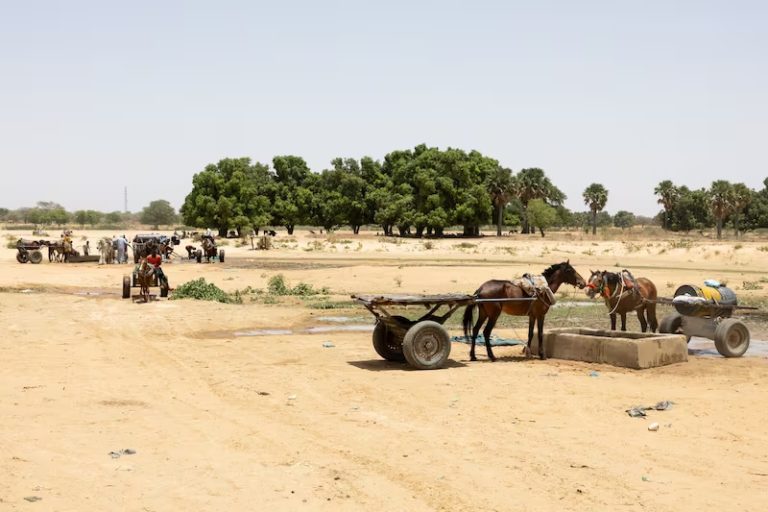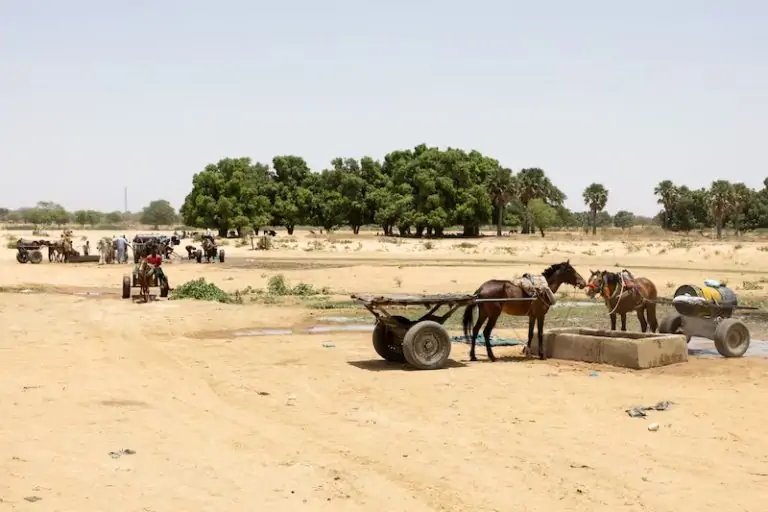

us temporarily withdraws troops from chad prepares for troop pullout from niger
The US military has announced a temporary withdrawal of most of its troops from Chad, as part of an ongoing review of security cooperation in the region. This move further diminishes the American footprint in Africa and comes amidst discussions with Niger for the orderly withdrawal of over 1,000 US troops stationed in the junta-ruled country. The Pentagon’s decisions signal a shift in US strategy in the Sahel region and West Africa, raising questions about the future of American security partnerships on the continent.
Pentagon press secretary Maj Gen Patrick Ryder confirmed the temporary withdrawal of US troops from Chad, citing the need for an ongoing review of security cooperation. This move, ahead of Chad’s May 6 presidential election, underscores the uncertainty surrounding US military presence in the landlocked Central African nation. While the withdrawal is described as temporary, its implications for future US engagement in Chad remain unclear.
In parallel, the Pentagon has initiated talks with Niger for the orderly withdrawal of American forces stationed in the country. Niger, which removed its president last year and recently terminated a military cooperation agreement with the US, poses a logistical and strategic challenge for the Pentagon’s counter-terrorism efforts in the Sahel region. Discussions between US and Nigerien officials in Niger’s capital signify a potential shift in US military strategy, with implications for regional security dynamics.
The temporary withdrawal from Chad and the planned troop pullout from Niger raise questions about the future of US security cooperation in Africa. Chad and Niger have played vital roles in the Pentagon’s counter-extremist efforts, serving as key bases for regional counter-terrorism operations. The reduction of US troops in these countries could impact the effectiveness of ongoing counter-terrorism efforts and regional stability. Moreover, the withdrawal reflects broader shifts in US foreign policy priorities and underscores the need for recalibrating security partnerships in the region.
The US military’s temporary withdrawal from Chad and preparations for troop pullout from Niger highlight evolving dynamics in American security cooperation in Africa. As the Pentagon reassesses its strategic posture on the continent, questions arise about the future of US engagement in counter-terrorism efforts and regional stability. The outcomes of these moves will shape the trajectory of US-Africa relations and have implications for broader security dynamics in the Sahel region and beyond.
The temporary withdrawal of US troops from Chad and the planned troop pullout from Niger could have significant implications for regional counter-terrorism efforts in the Sahel region and West Africa. Both Chad and Niger have served as crucial bases for US-led counter-extremist operations, providing strategic access and intelligence support. The reduction of US military presence in these countries may weaken regional counter-terrorism capabilities, leaving a void that could be exploited by extremist groups operating in the region.
The withdrawal of US troops from Chad and Niger presents both challenges and opportunities for regional stability in the Sahel region. While the absence of American forces may create security gaps and increase the vulnerability of local populations to extremist attacks, it also provides an opportunity for regional actors to take greater ownership of security initiatives. Enhanced cooperation among African nations and international partners will be essential in filling the security vacuum and addressing the root causes of instability in the region.
The temporary withdrawal from Chad and the planned troop pullout from Niger underscore broader shifts in US-Africa relations and foreign policy priorities. As the United States reassesses its strategic interests and commitments on the continent, African nations may seek to diversify their security partnerships and strengthen regional cooperation mechanisms. The outcomes of these developments will shape the future of US-Africa relations and influence the trajectory of security dynamics in the Sahel region and beyond.
The temporary withdrawal of US troops from Chad and the planned troop pullout from Niger mark significant developments in American security cooperation in Africa. While these moves raise concerns about the effectiveness of regional counter-terrorism efforts and stability in the Sahel region, they also present an opportunity for African nations to take greater ownership of security initiatives. As the United States recalibrates its strategic posture on the continent, collaboration and partnership will be essential in addressing the complex security challenges facing Africa.
The Somali president supports their military forces to eliminate the threats from Al-Shabaab, ISIS, and Al-Qaeda. The Somali National Army…
UAE President Sheikh Mohamed bin Zayed Al Nahyan held talks with President Faustin Archange Touadéra of the Central African Republic…
African football teams struggle intensely in the World Cup Qualification rounds to earn their place on the international football stage.…
The journey toward the 2026 FIFA World Cup is rapidly intensifying for all African teams, who now hold a historical…
The cricket authority in Zimbabwe will organize matches between top international teams in a major cricket event expected to succeed…
In 2025 the South African Social Security Agency (SASSA) announced its designated dates for social grant payments that benefits millions…
This website uses cookies.